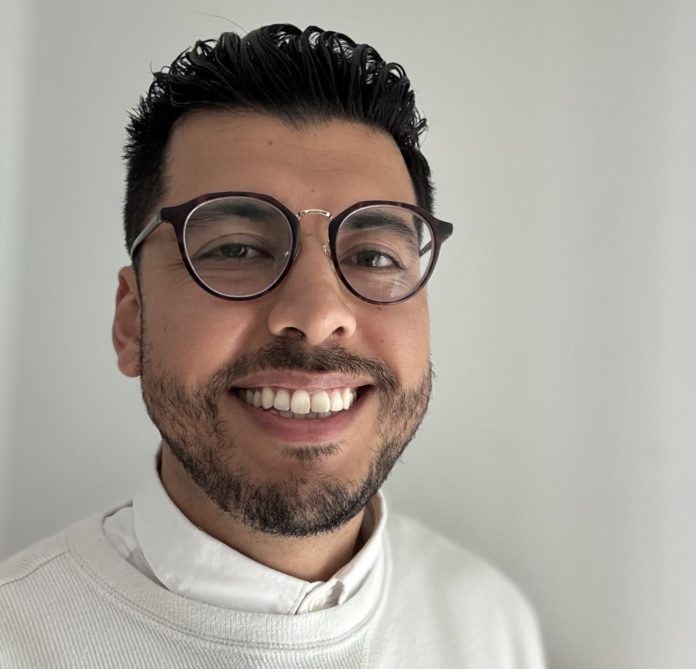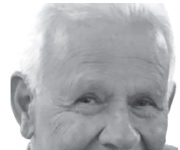Thirty-three years ago, while my family was preparing for a birthday party, I decided to arrive early. My mother was shopping for a cake for my sister’s second birthday in our small hometown of Cuerámaro, Guanajuato, Mexico—a rural town of at the time just 12,000 people—when labor hit suddenly. There was no time to reach the nearest hospital, nearly an hour away. Instead, I was born in a tiny clinic not much bigger than a $1,000-a-month apartment in San Francisco.
There were no delivery beds, no emergency doctors—just a small, makeshift office, some overwhelmed staff, and a mother who had no choice but to trust that everything would turn out OK.
This wasn’t a hypothetical scenario—it was our reality. And it left a lasting mark.
Eventually, my parents made a decision that many families facing hardship and seeking hope do: they came to the United States. They came to Watsonville, my mom’s hometown, seeking better care, a better future and a safer place to raise their children.
Now, decades later, as board chair of the Pajaro Valley Health Care District and Watsonville Community Hospital, I’m working to ensure that other families never have to experience the same fear and lack of access in their most vulnerable moments.
This week, as we celebrate the Fourth of July, I find myself reflecting not just on the symbolism of our nation’s independence, but on the values that truly define us—community, equity and opportunity. For me, those values are inseparable from one of the most fundamental rights a person can have: access to healthcare.
Here in Watsonville, we nearly lost that right. In 2021, Watsonville Community Hospital—the only hospital serving our largely immigrant, working-class, agricultural community—was days away from closing its doors. Without it, tens of thousands of people would have had to travel 30 minutes or more for emergency care, labor and delivery, or even basic diagnostic services.
That distance isn’t just an inconvenience. Studies show that every 10 miles someone lives from the nearest hospital increases their risk of death by more than 5%. When rural hospitals like ours close, mortality rates rise—especially for conditions where time is critical, like heart attacks, strokes and labor complications.
Our community refused to let that happen. Together, we fought to save our hospital. We rallied. We organized. And we returned the hospital to public ownership under a new health care district. Today, Watsonville Community Hospital is back in the hands of the people who rely on it most.
It was an act of self-determination that would make our nation’s founders proud.
But our work isn’t over—far from it. While we have reclaimed our hospital, the system that supports it remains fragile, and the challenges ahead in ensuring we retain local control remain daunting. Persistent cash flow problems—present since the start of our district in 2022—already make it difficult to sustain operations, expand services, and reinvest into staff. And President Trump’s so-called “Big Beautiful Bill,” which would cut billions from Medicaid (Medi-Cal in California), threatens to make a difficult situation worse.
If passed, those cuts could force hospitals like ours—and at least 380 other independent, rural hospitals nationwide, according to a recent report—into making difficult decisions just to survive. For a hospital where close to 80% of patients rely on Medi-Cal or Medicare to receive the care they need, the consequences of such funding shifts could dramatically shift our plans of how we manage our local hospital.
That’s why we must stay vigilant. Because healthcare isn’t just about hospitals or insurance plans. It’s about honoring the promise that no matter your ZIP code, income or status, you deserve to live with dignity—and to know that help will be there when you need it most.
This, to me, is the truest expression of the American ideal. Not rugged individualism or blind optimism, but collective responsibility, shared investment, and the belief that we are stronger when we care for one another.
Watsonville isn’t defined by its challenges—it’s defined by its people. By the nurses who work overnight shifts. By the families who pack lunches at dawn and still show up to PTA meetings. By the farmers, farmworkers and truck drivers that power our powerful agriculture industry. And by those who gave whatever they could to save our hospital and reinvested in it by voting “yes” on Measure N.
That is what makes this community great. That is what makes this country great.
As we light fireworks and wave flags this week, let’s remember that the freedoms we celebrate on the Fourth of July are only meaningful when they are matched by opportunity and access. And let’s continue to build a future where every person—regardless of where they were born—can count on something as simple and as powerful as a place to heal.
Tony Nuñez is the chair of the Pajaro Valley Health Care District Board of Directors. He can be reached at To********@***cd.org.









Watsonville Hospital emergency room gives crappy care. I went to EM and my blood pressure was stroke level and all medical advice says I should have seen a doctor as soon as I arrived to prevent a stroke. Instead I was made to wait while they treated others with colds, and minor issues. After 3 hours I left because my pain was so severe I couldn’t sit there anymore. I went to my doctor the next day and she was furious I had been left there to suffer. I will never go to this hospital again as they give lousy care and are ignorant at reading blood pressure and dealing with it. They also allowed drunk crazy people to wander the hallways in the ER while people are in the various rooms. Great hospitals like Stanford never allow this kind of behavior and don’t let any patient sit with severe high blood pressure at stroke level without seeing a doctor within the first few minutes. Watsonville is a welfare hospital that will be in serious trouble when the Medicaid cuts hit,
May, We’re very sorry to hear about the experience you describe. Your feedback is important and we’d like to learn more. Please contact our Patient Experience team at Watsonville Community Hospital at WC********@*****************al.com so we can address your concerns directly.
With kindest regards,
The Patient Experience Team at Watsonville Community Hospital
i had hernia surgery in november 2016 and had EXCELLENT care. we need our local hospitals. the MAGA MORONIC MESS that passed the senate by 2 votes a week ago will ELIMINATE hospitals in rural communities across the nation. Because of good planning and forming a hospital district supported by MEASURE N is why. there is nothing big or beautiful coming from the tiny hands(among other things) from trump. only pain and suffering for the working poor, the middle class and anyone who is undocumented.
Tony is correct: blind optimism and rugged individualism did NOT make America great. cooperation and mutual support did. so did hard work . trump has NEVER WORKED A DAY IN HIS LIFE. that is what happens when Daddy hands you 413 million dollars and a real estate firm based on FRAUD.
i had hernia surgery in november 2016 and had EXCELLENT care. we need our local hospitals. the MAGA MORONIC MESS that passed the senate by 2 votes a week ago will ELIMINATE hospitals in rural communities across the nation. Because of good planning and forming a hospital district supported by MEASURE N is why. there is nothing big or beautiful coming from the tiny hands(among other things) from trump. only pain and suffering for the working poor, the middle class and anyone who is undocumented.
Tony is correct: blind optimism and rugged individualism did NOT make America great. cooperation and mutual support did. so did hard work . trump has NEVER WORKED A DAY IN HIS LIFE. that is what happens when Daddy hands you 413 million dollars and a real estate firm based on FRAUD.